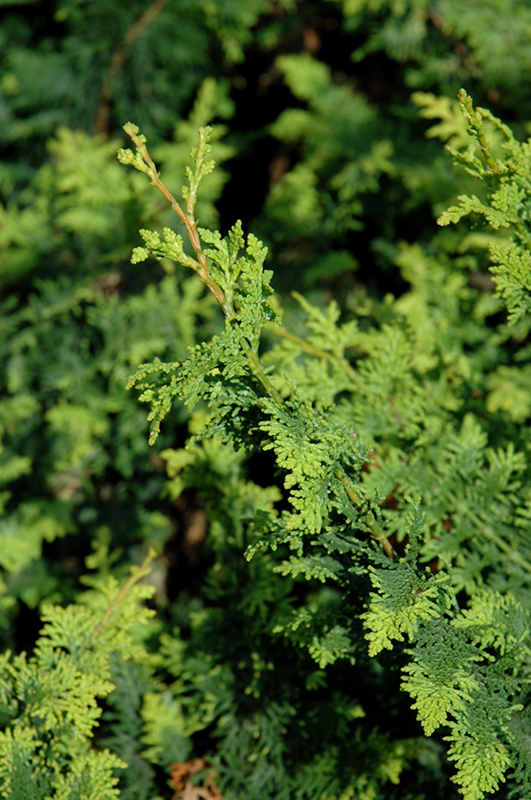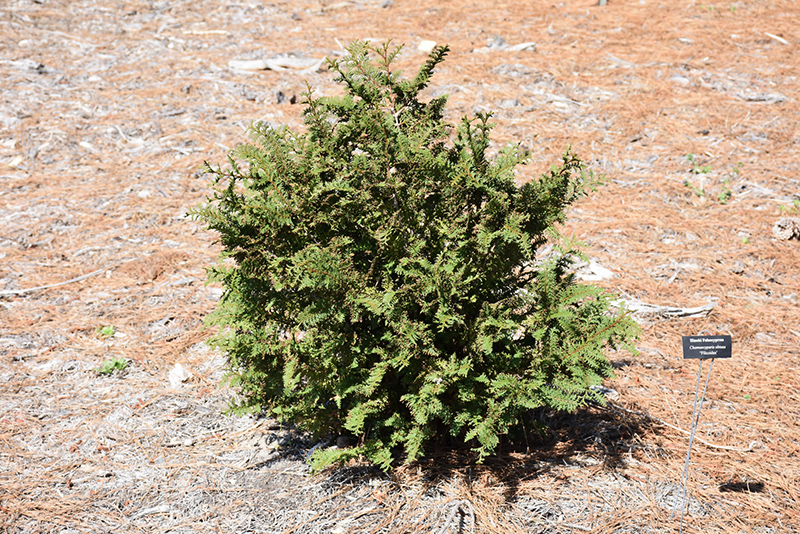Fernspray Hinoki Falsecypress
Chamaecyparis obtusa 'Filicoides'
Height: 10 feet
Spread: 4 feet
Sunlight:
![]()
![]()
Hardiness Zone: 4
Description:
Dark green sprays of ferny foliage grow in dense clumps on a pyramidal habit of growth; a perfect choice as a residential landscape accent, along the back of borders; or for screening
Ornamental Features
Fernspray Hinoki Falsecypress is a dwarf conifer which is primarily valued in the landscape or garden for its distinctively pyramidal habit of growth. It has attractive bluish-green evergreen foliage which emerges light green in spring. The scale-like sprays of foliage are highly ornamental and remain bluish-green throughout the winter.
Landscape Attributes
Fernspray Hinoki Falsecypress is a dense multi-stemmed evergreen shrub with a distinctive and refined pyramidal form. Its average texture blends into the landscape, but can be balanced by one or two finer or coarser trees or shrubs for an effective composition.
This shrub will require occasional maintenance and upkeep. When pruning is necessary, it is recommended to only trim back the new growth of the current season, other than to remove any dieback. It has no significant negative characteristics.
Fernspray Hinoki Falsecypress is recommended for the following landscape applications;
- Accent
- Hedges/Screening
- General Garden Use
Planting & Growing
Fernspray Hinoki Falsecypress will grow to be about 10 feet tall at maturity, with a spread of 4 feet. It has a low canopy with a typical clearance of 1 foot from the ground, and is suitable for planting under power lines. It grows at a slow rate, and under ideal conditions can be expected to live for 70 years or more.
This shrub does best in partial shade to full shade. Keep it well away from hot, dry locations that receive direct afternoon sun or which get reflected sunlight, such as against the south side of a white wall. It prefers to grow in average to moist conditions, and shouldn't be allowed to dry out. It may require supplemental watering during periods of drought or extended heat. It is not particular as to soil type or pH. It is highly tolerant of urban pollution and will even thrive in inner city environments, and will benefit from being planted in a relatively sheltered location. Consider applying a thick mulch around the root zone in both summer and winter to conserve soil moisture and protect it in exposed locations or colder microclimates. This is a selected variety of a species not originally from North America.


